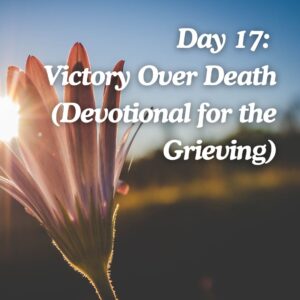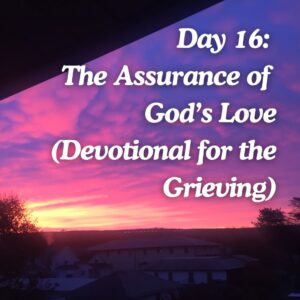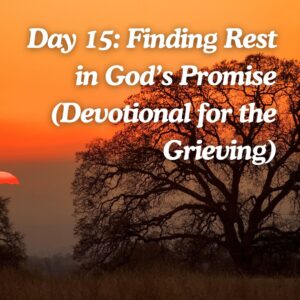 Bible Verse:
Bible Verse:
“God is our refuge and strength, a very present help in trouble.” – Psalm 46:1 (WEBBE)
Reflection:
Grief can feel like a storm, raging and relentless, tossing you back and forth with no place to find solid ground. It’s easy to feel overwhelmed, as if there is no safe place to turn. But in the middle of this turmoil, Psalm 46:1 offers a reassuring promise: “God is our refuge and strength, a very present help in trouble.”
A refuge is a place of safety, a secure, sheltered space where you can rest and find protection. When grief strikes, we often search for something to anchor us, something that can withstand the storms we face. This verse tells us that God is that anchor. He is our refuge, strong and unmovable. He is our strength when we feel powerless. And He is always present, not distant or disconnected, but a very present help in times of trouble.
Even in moments when grief feels overwhelming, remember that God’s strength is available to you. You don’t have to carry this burden alone. Turn to Him and find solace in His unwavering support. Whether through prayer, reading Scripture, or simply resting in His presence, know that God is there, ready to give you the strength and peace you need.
Prayer:
Lord, when grief surrounds me like a storm, I turn to You as my refuge and strength. Thank You for being present, even in my moments of deepest sadness. Help me to lean on You, knowing that I am never alone. I trust that You are my safe place and that Your strength will carry me through today and every day. Amen.
Course of Action for Today:
Pause for a moment and visualize God as your refuge—a strong, protective shelter that surrounds you. Close your eyes and breathe deeply, allowing yourself to release any tension or worry. Spend a few minutes in quiet prayer, asking for God’s strength and comfort to fill your heart. If you feel led, write down a few words or thoughts that remind you of God’s protection and strength.
Reflection Question:
What small action can you take today to remind yourself that God is your refuge and strength during this difficult time?



